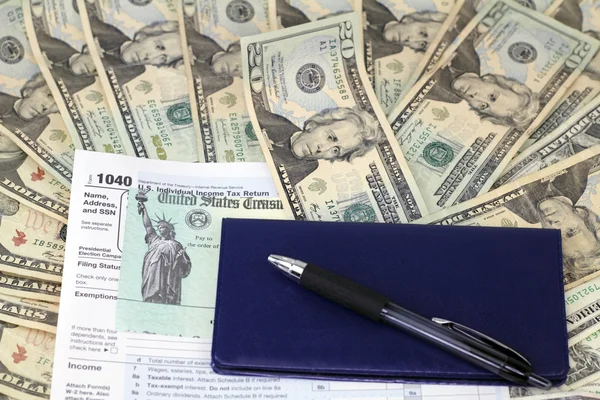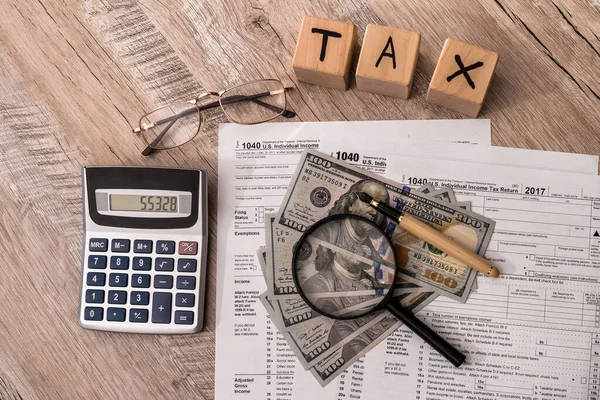Forex trading, also known as foreign exchange trading, has become increasingly popular in the United States. While it can be a lucrative venture, it is important for traders to understand the tax implications that come with it. The Internal Revenue Service (IRS) has specific rules and regulations regarding the taxation of forex trading income, and it is crucial for traders to be aware of these in order to avoid any legal issues. In this article, we will delve into the world of forex trading and the tax implications in the USA.
Understanding Forex Trading
Forex trading involves the exchange of one currency for another, with the aim of making a profit from the fluctuations in exchange rates. It is a decentralized market, meaning that it operates 24 hours a day, five days a week, and is not confined to a physical location. Traders can participate in the forex market through various platforms, including online brokers and banks. Forex trading can be a complex and fast-paced venture, requiring a good understanding of the market and the factors that influence currency values.

In the United States, forex trading is regulated by the Commodity Futures Trading Commission (CFTC) and the National Futures Association (NFA). These organizations ensure that forex brokers and traders adhere to certain standards and regulations, in order to protect investors and maintain the integrity of the market. Forex trading can be done through various instruments, including spot transactions, forward contracts, and options.
Forex trading can be a profitable venture, but it is not without its risks. The forex market is highly volatile, and currency values can change rapidly due to various factors, such as economic data releases, geopolitical events, and central bank decisions. Traders need to have a solid trading strategy and risk management plan in place to be successful in forex trading.
Tax Implications for Traders
Forex trading can have significant tax implications for traders in the United States. The IRS treats forex gains and losses as either ordinary income or capital gains, depending on the type of trading activity. For example, spot forex transactions are generally taxed as ordinary income, while futures and options contracts are taxed as capital gains. Traders need to be aware of the tax rate that applies to their forex trading activity, as it can significantly impact their overall profitability.
The IRS also has specific rules regarding the reporting of forex gains and losses. Traders must report their forex income on Form 8949, which is used to report capital gains and losses. If a trader has a net capital gain, they may be subject to the capital gains tax rate, which varies depending on their income level. If a trader has a net capital loss, they may be able to deduct it from their other income, up to a certain limit.
Traders should also be aware of the wash sale rule, which prohibits them from claiming a tax deduction for a loss on a security if they repurchase the same security within 30 days before or after the sale. This rule is designed to prevent traders from artificially creating tax losses to offset their gains.
Reporting Forex Income to IRS
Forex traders are required to report their income to the IRS, and failure to do so can result in significant penalties and fines. Traders must keep detailed records of their forex transactions, including the date, currency pair, amount, and price of each trade. These records are necessary for accurate tax reporting and can also be useful in the event of an audit.

Traders must also report any foreign bank or financial accounts they have, if the total value of all accounts exceeds $10,000 at any point during the year. This is done through the Report of Foreign Bank and Financial Accounts (FBAR) form, which is filed separately from the tax return. Failure to file the FBAR can result in severe penalties, including fines and even criminal charges.
In addition to the FBAR, traders may also need to file Form 8938, which is used to report specified foreign financial assets. This form is required if the total value of all foreign financial assets exceeds certain thresholds, which vary depending on the taxpayer’s filing status and residency.
Foreign Exchange and Taxes
Forex traders must also consider the tax implications of foreign exchange transactions. When trading in foreign currencies, traders may incur foreign exchange gains or losses, which can impact their overall tax liability. The IRS requires traders to report these gains and losses on their tax return, and they are taxed at the ordinary income tax rate.
Traders must also be aware of the foreign tax credit, which allows them to claim a credit for any taxes paid to a foreign government on their forex trading income. This credit is designed to prevent double taxation and can be claimed on Form 1116. However, there are certain limitations and requirements that must be met in order to claim the credit.
It is important for forex traders to keep track of the exchange rates used in their transactions, as this can impact their tax liability. The IRS requires traders to use the spot exchange rate on the date of the transaction for tax reporting purposes. Traders can use the exchange rates provided by the Treasury Department or other reliable sources for this purpose.
| Aspect | Spot Forex Trading | Futures and Options Forex Trading | CFDs (Contract for Differences) |
|---|---|---|---|
| Type of Tax | Capital Gains Tax | Section 1256 Contracts | Capital Gains Tax |
| Short-term Capital Gains Tax Rate | Ordinary income tax rate (up to 37%) | 40% at ordinary income tax rates | Ordinary income tax rate (up to 37%) |
| Long-term Capital Gains Tax Rate | 0%, 15%, or 20% based on income | 60% at long-term capital gains rates (0%, 15%, or 20%) | 0%, 15%, or 20% based on income |
| Reporting Requirements | Report on IRS Form 8949 and Schedule D | Report on IRS Form 6781 (Gains and Losses from Section 1256 Contracts and Straddles) | Report on IRS Form 8949 and Schedule D |
| Tax Loss Harvesting | Allowed, subject to wash-sale rule | Mark-to-market accounting, wash-sale rule does not apply | Allowed, subject to wash-sale rule |
| Special Considerations | Forex traders can opt out of Section 988 (ordinary gains), to capitalize on favorable long-term capital gain rates | Profits and losses are treated as 60% long-term and 40% short-term regardless of the holding period | Not available for U.S. residents due to regulatory restrictions |
| Year-end Tax Treatment | Realized and unrealized gains are taxable | All positions are marked-to-market at year-end, and unrealized gains/losses are reported | Realized and unrealized gains are taxable |
Please note:
- The information provided in this table is a general guide and may not cover all individual circumstances. Tax laws are subject to change and can vary based on individual situations.
- Forex traders in the USA should consult with a tax professional to understand their specific obligations and options.
- CFD trading is not permitted in the United States, and thus, the tax implications are more relevant for U.S. citizens trading through platforms regulated in other countries.
Tax Deductions for Traders
Forex traders may be able to claim certain deductions on their tax returns, which can help reduce their overall tax liability. For example, traders can deduct trading-related expenses, such as computer equipment, software, and internet fees. They can also deduct education and training expenses, as long as they are directly related to their trading activity.
Traders can also claim the home office deduction if they use a portion of their home exclusively for trading. This deduction allows traders to deduct a portion of their rent or mortgage, utilities, and other home-related expenses. However, there are certain requirements that must be met in order to claim this deduction.
In addition, traders can deduct travel expenses related to their trading activity, such as attending conferences or seminars. These expenses must be ordinary and necessary for their trading business, and they must be properly documented in order to be deductible.
Navigating Forex Tax Laws
Navigating the tax laws related to forex trading can be complex and challenging. Traders should consider seeking the advice of a tax professional who has experience with forex taxation. A tax professional can help traders understand the tax implications of their trading activity, ensure they are in compliance with IRS rules and regulations, and help them take advantage of any available deductions and credits.
Traders should also stay informed about any changes to the tax laws that may impact their trading activity. The IRS regularly updates its rules and regulations, and staying up-to-date can help traders avoid any potential issues. Traders can find information on the IRS website, as well as through professional organizations and publications.
Ultimately, forex traders must take responsibility for their tax obligations. By understanding the tax implications of their trading activity, keeping accurate records, and seeking professional advice, traders can navigate the forex tax laws and minimize their tax liability.
Forex trading can be a profitable venture, but it is important for traders to understand the tax implications that come with it. By being aware of the rules and regulations regarding the taxation of forex trading income, keeping detailed records, and seeking professional advice, traders can navigate the complex world of forex tax laws and avoid any legal issues. With proper planning and preparation, traders can confidently participate in the forex market while staying in compliance with IRS requirements.

